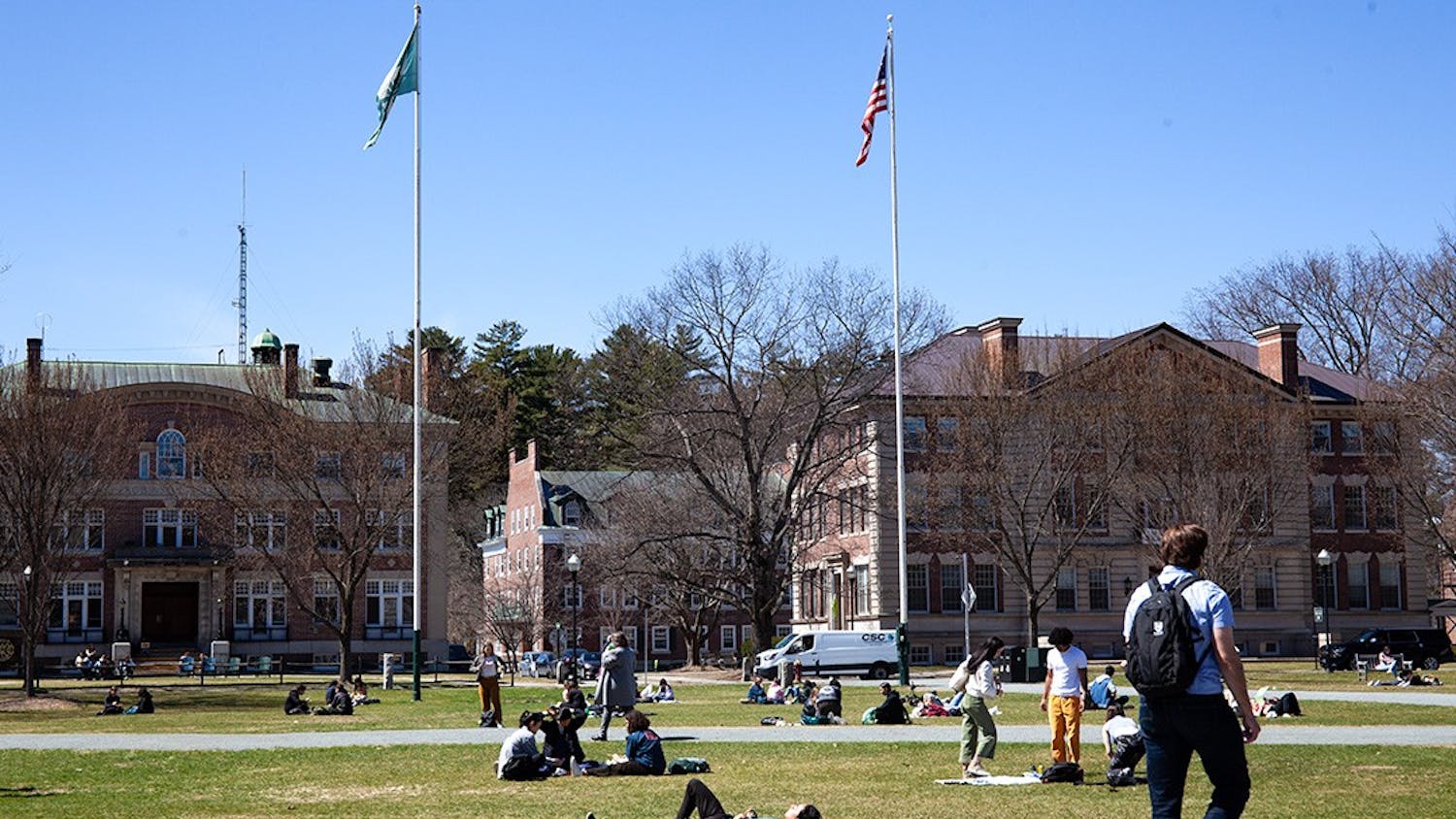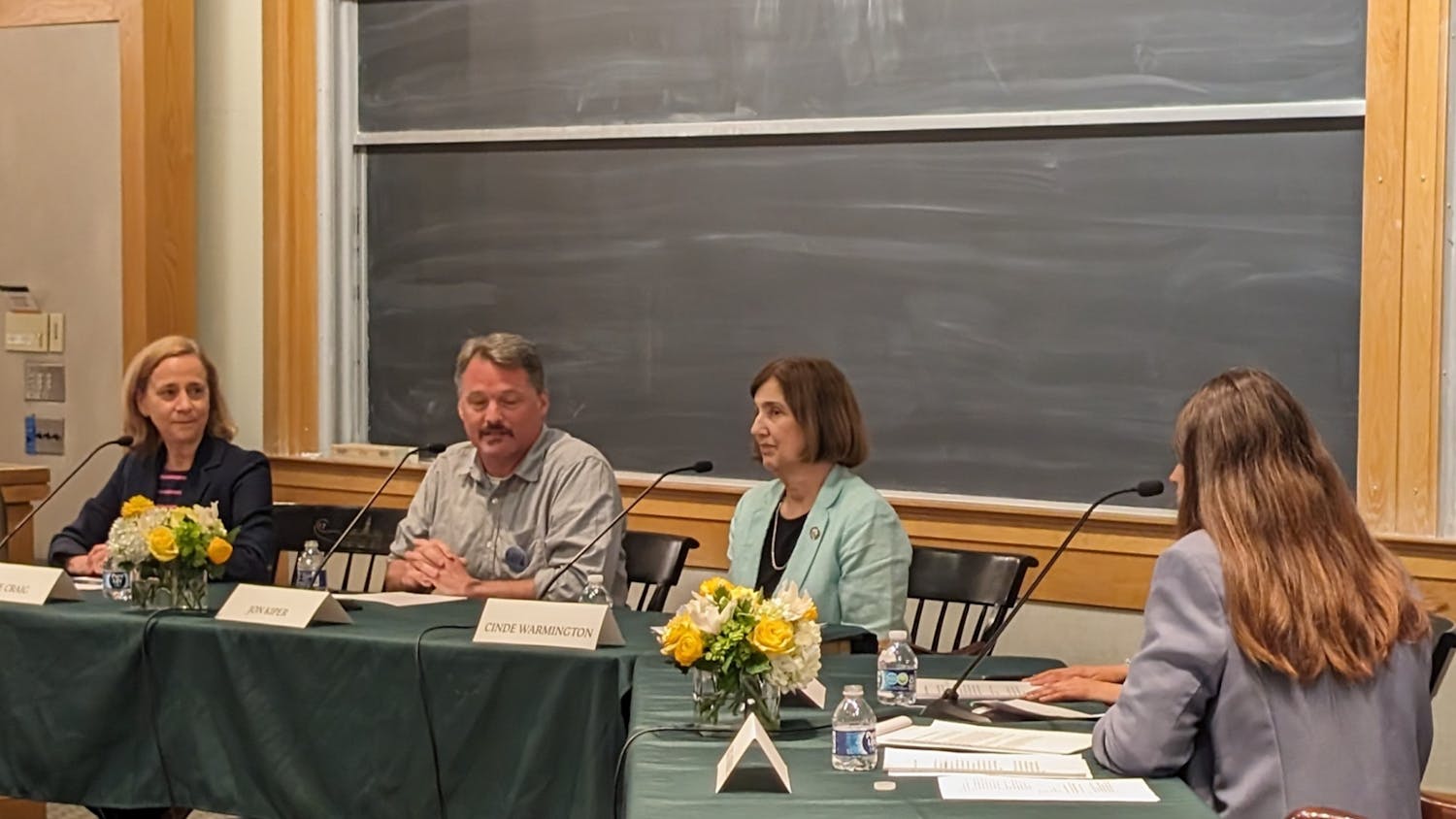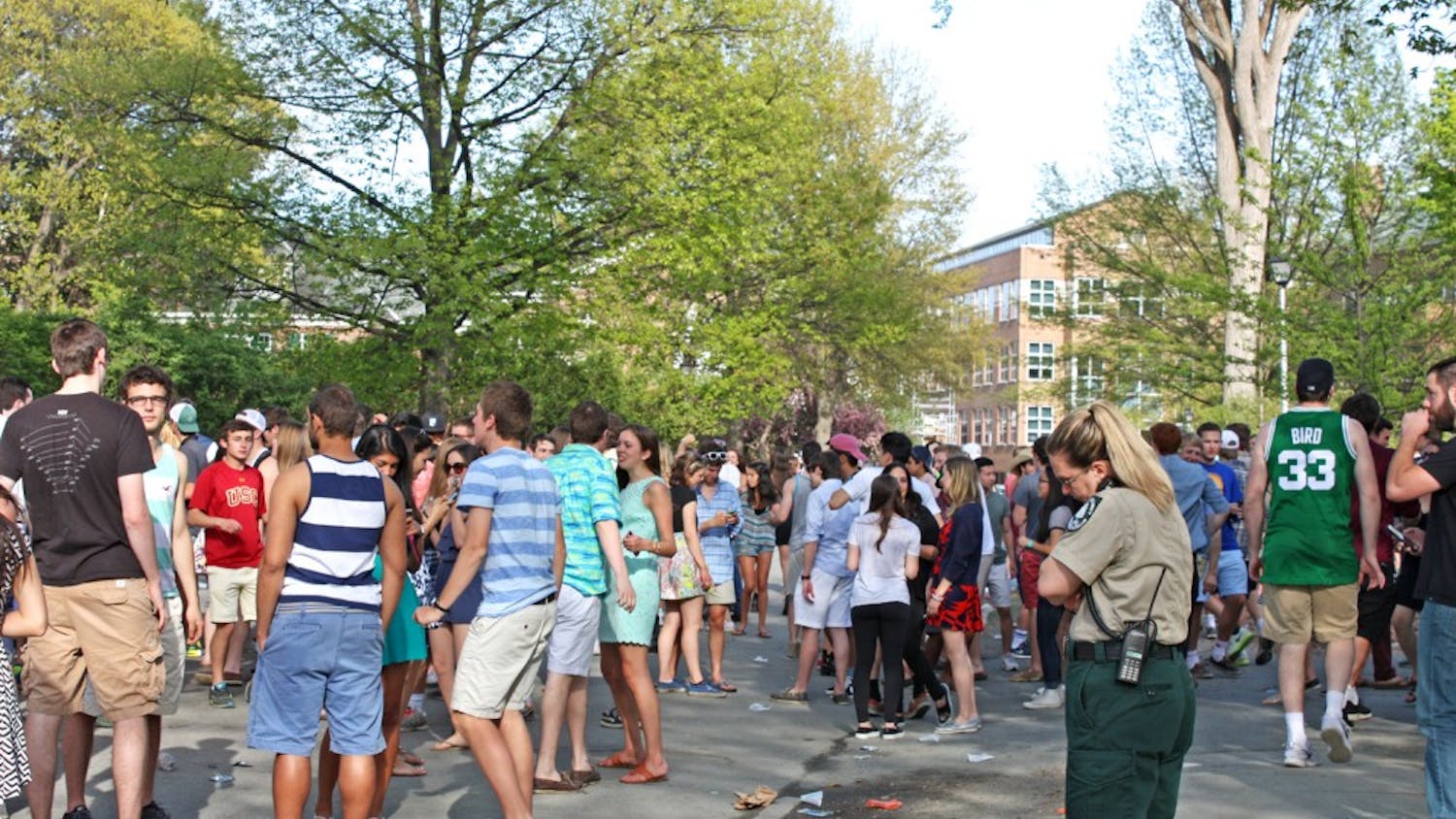When Joseph Stalin heard of the rate at which Mao Zedong was collectivizing China, even he was astonished. In a lecture on Tuesday, Frank Dikotter, chair humanities professor at the University of Hong Kong, questioned the conventional narrative of a Chinese "Golden Age" in the country's initial transition to the Communist regime.
Drawing upon information from newly opened archives, Dikotter presented evidence that violence was an intrinsic element, rather than a byproduct, of the initial state-led reforms that many believed were peaceful. Following the victory of the People's Liberation Army over Chiang Kai-Shek's Nationalist Army in 1949, every "liberated" Chinese town was forced to participate in a program of thought reform, which consisted of mandatory schooling on the new ideology, public scrutiny over political reliability and public denouncement of friends and family.
In response, rebellions erupted across China, prompting many people to leave their homes to join anti-Communist armies in the mountains or stage attacks on state property.
Mao, who had promised to give a voice to every member of society, instead organized witch hunts targeting members of the Nationalist Party, corrupt officials, the bourgeoisie anybody who could be an enemy of the state. He established kill quotas of one to three per 1,000 people, forcing people to abandon personal relationships, Dikotter said.
During this violent transition, people were arrested, interrogated and executed at public rallies. Hundreds of elementary school children were taken away by the police and questioned on charges of spying and theft, while some were tortured to death. Meanwhile, local authorities took advantage of these campaigns to quietly eliminate their own enemies.
By 1957, two million people had vanished and most forms of opposition crushed. The stage was set for the Great Leap Forward, which would only continue this era's violence.
Max Samuels '15 said he left the lecture feeling more knowledgeable than when he had come in and was surprised by the diversity of the audience, which became apparent during the question and answer session.
"It seems like people were coming in from all sorts of backgrounds and different perspectives," he said. "We had American historians and Chinese natives coming at the information from different angles."
In the discussion after the lecture, several native Chinese professors expressed surprise over the atrocities mentioned in Dikotter's presentation. Some said they had never discussed these events in much detail in their schools or with friends and family members.
One professor commented that Dikotter's portrayal of the period made the Chinese people appear passive and reluctant to approach history in a critical manner, when in fact the majority of Chinese people were interested in discussing these events. He added that the Chinese people may not have believed that these events were as important as Dikotter claimed.
Other audience members questioned why Dikotter did not incorporate more oral history.
In response to this criticism, Dikotter said that most of his information came from internal Party records. Most people affected by the events of the Golden Age were from rural backgrounds and, as a result, did not leave behind much written work about these events.
He agreed with an audience member who noted that there exists a bias in academia toward testimony from members of the scholarly class, who are encouraged to reflect on and write about their personal experiences, a privilege not available to the average farmers or factory worker.
Though Dikotter acknowledged that challenging the myth of the regime's beginnings can be seen as political commentary, he emphasized that his book focuses on the social history of the time.
"I want my readers to see people during this period as human beings, not just as pawns in a larger argument on the nature of Communism," he said. "I'd like people to read this book and get a sense of the extraordinary diversity of their experiences in this period."
History professor Pamela Crossley, who specializes in the Qing empire, said she organized the lecture to give students an opportunity to learn about events that may have been forgotten.
The lecture, "The Tragedy of Liberation: A History of the Communist Revolution, 1945-1957," was held in Filene Auditorium.



